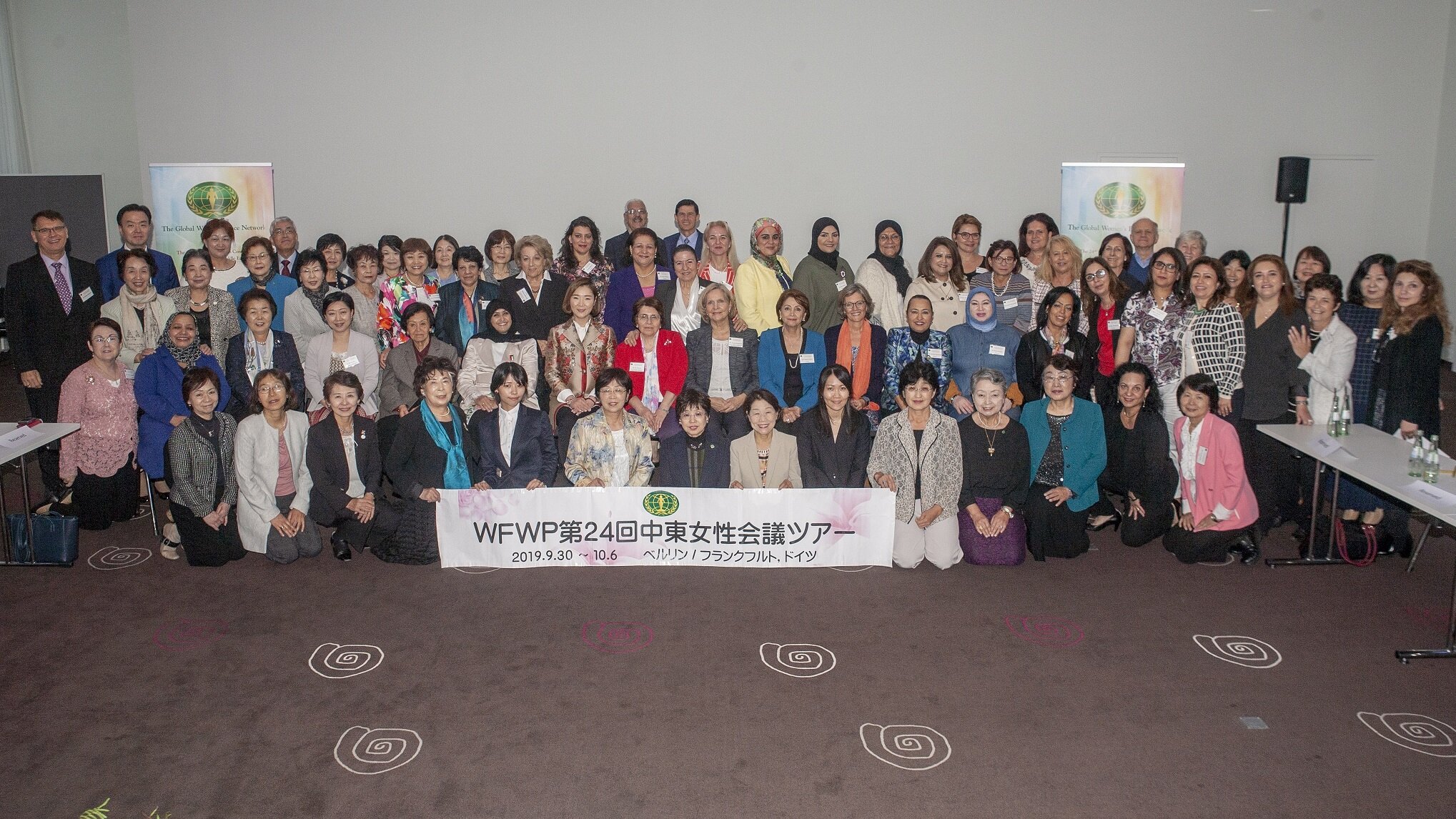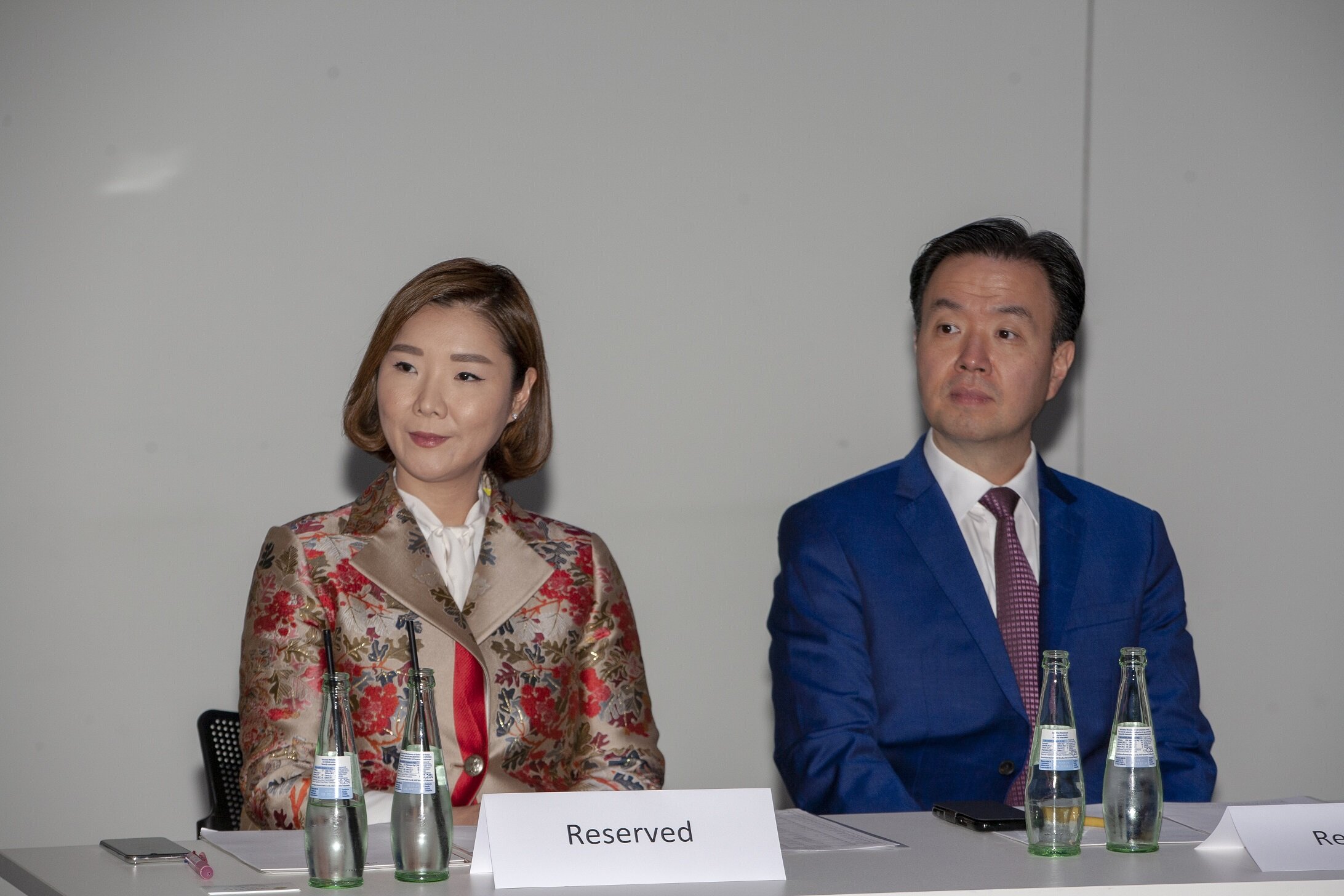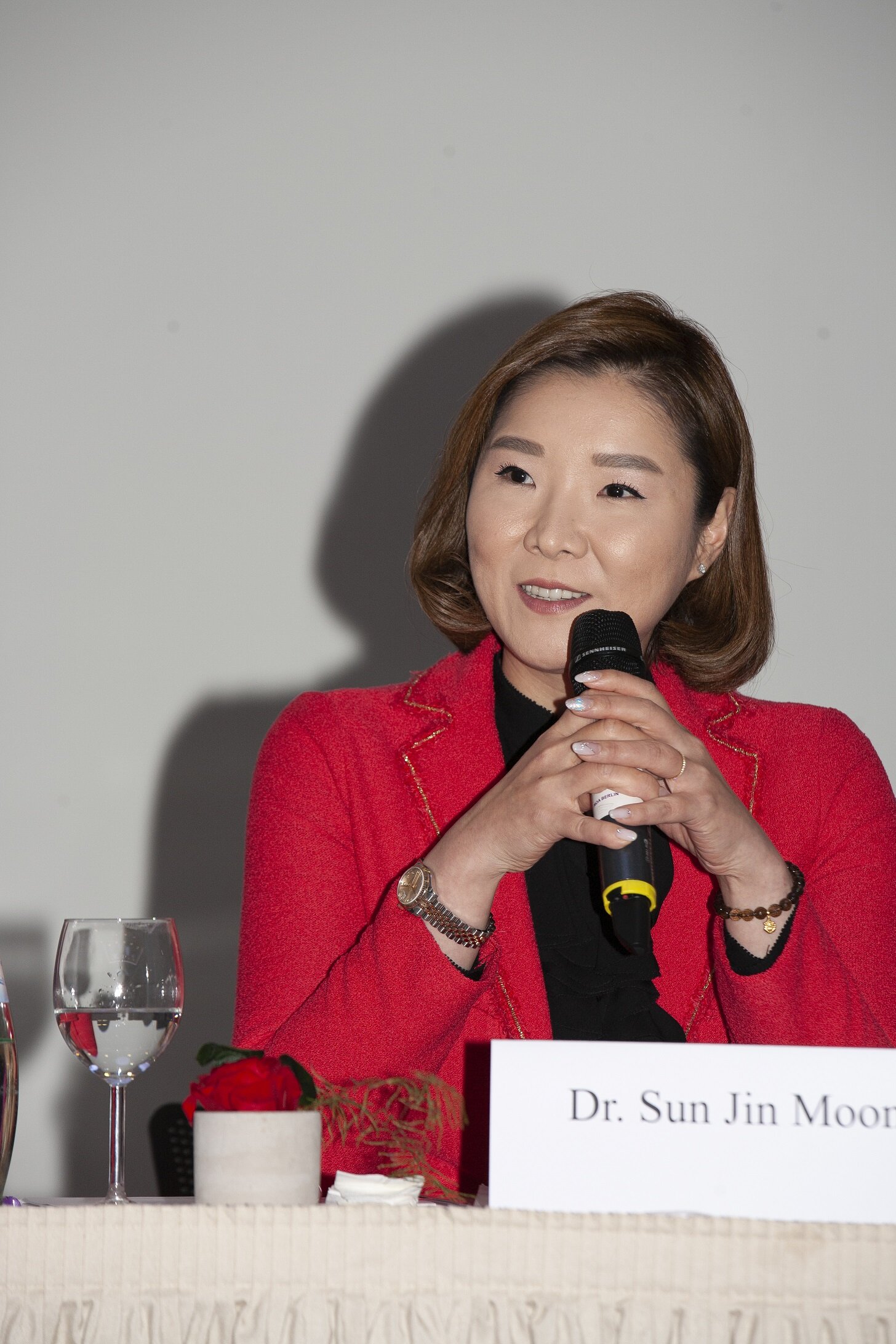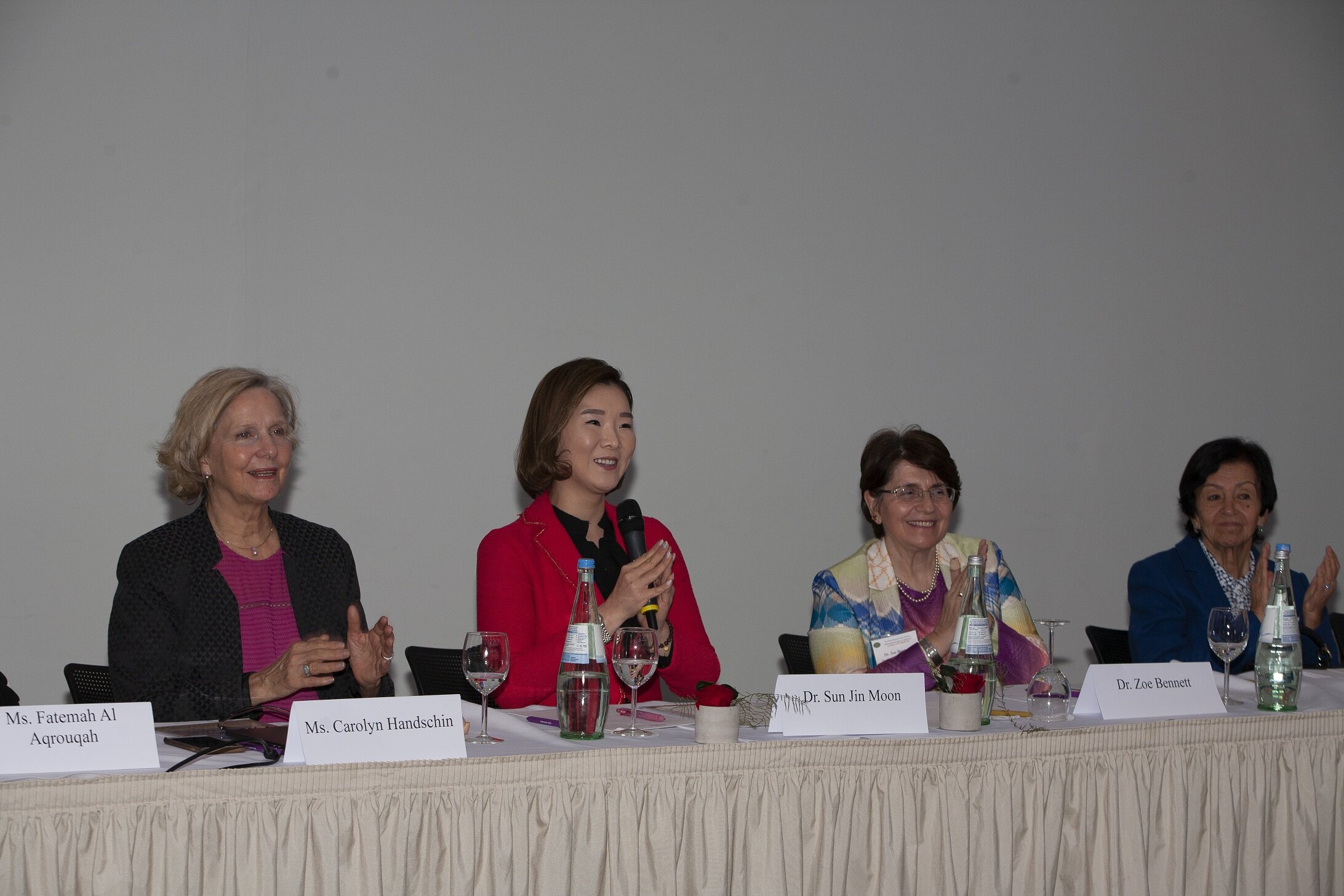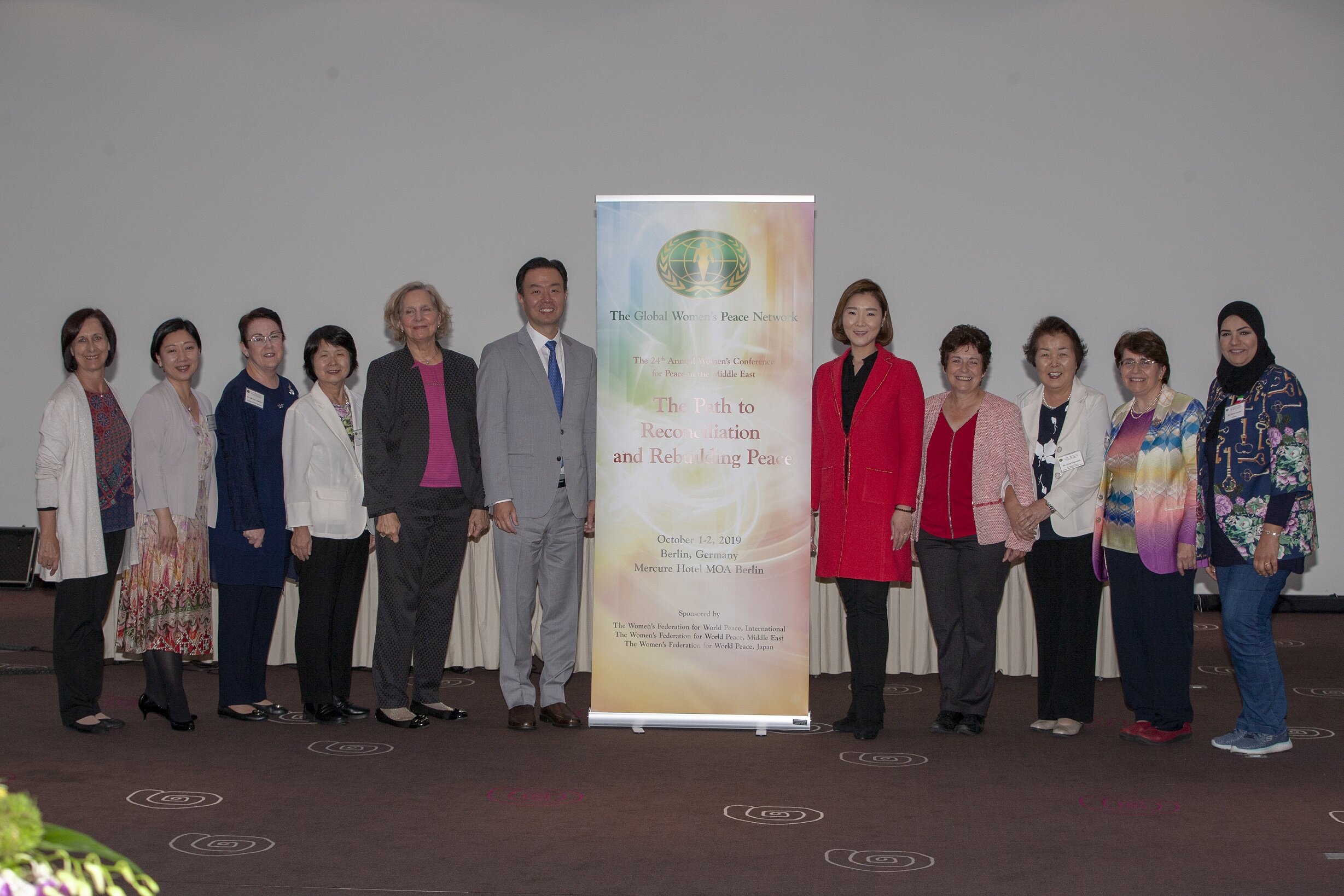24th Annual Women’s Conference for Peace in The Middle East
Written by Carolyn Handschin, Magda Haugen, Zoe Bennet
For 23 years, the Women’s Conference for Peace (MEWC) in the Middle East has gathered women leaders from throughout the Middle East (ME) to forge partnerships among themselves, and with concerned European counterparts to work out obstacles to the long-sought ME peace. This year’s theme was, “The Path to Reconciliation and Rebuilding Peace”, and was organized with the sponsorship and support of WFWP Japan and WFWP ME. The city of Berlin was chosen because it stands as a historic example of success in rebuilding peaceful relations after painful division. The eighty participants, included 33 women from 14 countries in the Middle East-North Africa (MENA) region, with 30% of them young women.
After welcoming remarks on behalf of WFWPI by Mrs. Carolyn Handschin and Dr. Zoe Bennett, both having been engaged in the MEW conferences since 2002, Ms. Monica Goracci, who has worked for twenty years with the International Organization for Migration-IOM, gave a presentation about the current situation of migrants in Germany. She explained about the national framework for integration and the reason that women migrate: in order to find work, equal opportunity and better education for their children. Because what they find does not always match their expectation, the support and care of international organizations and local community can make tremendous difference in their lives and those they touch. The 2 days were divided into 4 sessions:
1. Peace Efforts in the Middle East
2. Women`s Presence to the Peace Process
3. Success Stories from the Middle East
4. Educating the Next Generation of Peacemakers
Session 1:The former Minister of Social Affairs of Egypt and senior advisor of this year’s conference, Dr. Amal Osman noted women’s capabilities and their responsibility to make a more effective contribution to peace at all levels and insisted on the importance of the family in educating towards the values of good character. Dr. Rahiba Dabbas, senator in Jordan and former government minister described the tensions related to protecting refugees and preserving peace inside the country as well as being the peace mediators among their neighbors, stirring passions around the table. A member of the Kuwaiti royal family, Dr. Sheika Suhaila Alsaba who is very engaged in the Ministry of Social Services, emphasized that women are looking for solutions. She pointed to the humanitarian and intra Gulf mediation efforts of Kuwait as concrete steps. A former Member of Parliament from Cyprus, Hon. Irene Mayronikola passionately explained about her experiences as an internally displaced person in her youth and the understanding she has for the suffering of the refugees from Syria or Palestine, which she brings to her work as a lawmaker.
Each session ended with a vibrant, often passionate, interactive exchange where most felt safe enough to express their opinion and listen to others, even though they may not be free to do so elsewhere. Some had never personally met, let alone share thoughts on peace with, women of other or even “enemy” countries.
Session 2: Led by Dr. Nada Howard, consultant on United Nations Affairs over 15 years, the first presenter of this panel was Dr. Iris Dotan Katz. She was in tears, the audience as well, during her showing of the film “March of Hope”, an artistic interpretation of women of different faiths singing longingly for a shared peace. She had prepared a long list of the work Israeli women are doing to promote peace with Palestine, sometimes at risk of life and livelihood. May Kassem Barghouty, Cultural Affairs Expert at the American Embassy in Palestinian passes through check points each day. Any brighter future for children is linked to education, and through that, financial independence. Over 250 women belong to her entrepreneurial network that helps women to establish their own companies, employing others, even sometimes their husbands. Finally, Dr. Zainab Al-Suwajj, longtime friend of WFWP, is a trainer in peace and life skills for Moslem women for the American Islamic Congress in Washington traveling between the USA and ME regularly . Because families and clans sometimes prevent female participation in politics or access is possible only when a male member of the family is in a position, there is much to be done. Partnerships with WFWP and UPF have been very helpful.
The closing session was facilitated by Ms. Fathmah Alaqruogah, Counsellor and Co-Founder of the Women’s Peace Pioneer Initiative 1325. She has attended all 24 conferences and has brought many women leaders from throughout the ME. Mrs. Carolyn Handschin, Director of the UN Office for WFWPI was given the entire session. What are the concerns of youth today. How can we provide the incentive and opportunities for them to make wise choices? The Sustainable Development Goals (SDG’s) are there, the Universal Declaration of Human Rights (UDHR) or Security Council Resolution 1325 too. It isn’t enough.
We all have rights-to development, peace, prosperity -but that these bring with them responsibilities. Just claiming rights is the weaker course. Families have the capacity to give the tools for peacemaking and ethical leadership, shaping global citizens who feel compelled and confident to contribute their skills and talents. Mothers must be made aware of the gravity of that role. WFWP founder, Dr Hak Ja Han Moon, mother of 13, is a remarkable model. She has assisted her husband, Dr. Sun Myung Moon in founding and guiding dozens of organizations promoting peace and human development, touching every corner of the world- and now stands as the head. Her very successful and awe-inspiring leadership clearly incorporates the love and skills she developed as a mother, setting a new benchmark for women’s leadership and governance and a capacity to engage youth.
Each conference culminates in an outcome document or initiative, it was unanimously decided to set up a joint media platform to capture the voices of youth and women in their quest for peace. Video clips would be posted on that platform that would be accessible and sharable over the internet throughout the world.

